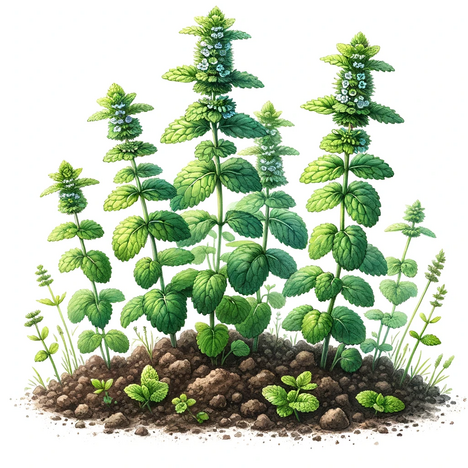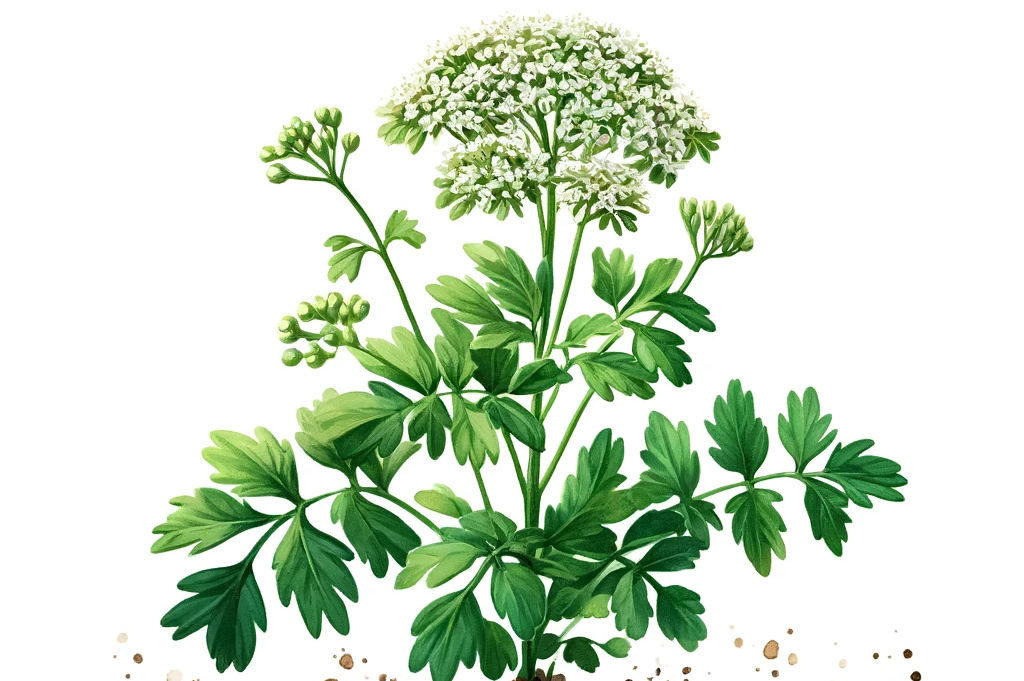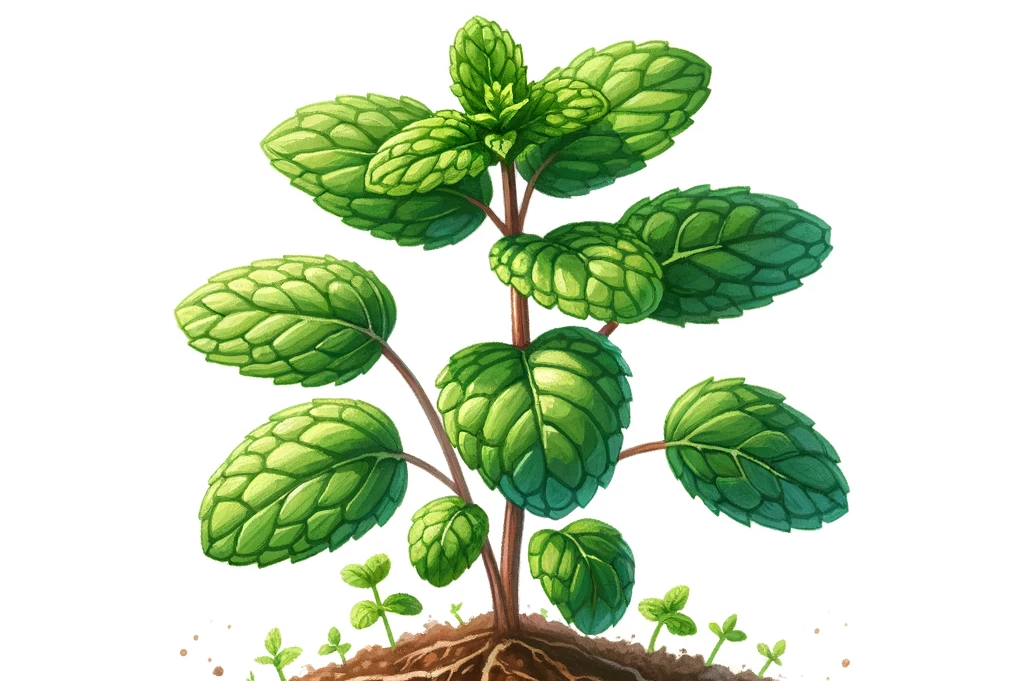Melissa herb

What is lemon balm herb?
Lemon balm is a perennial plant that can grow up to one meter high. It has green, toothed leaves and small white or pink flowers. The plant originates from the Mediterranean region and now grows in many parts of the world. Lemon balm is valued above all for its aromatic oil, which is contained in the leaves. This oil has various ingredients that have a calming, anti-inflammatory, antibacterial and antiviral effect.
What are the benefits of lemon balm herb for dogs?
Lemon balm herb can have several benefits for dogs, especially nervous or stressed animals. Lemon balm herb can help reduce anxiety, promote sleep and improve mood. In addition, lemon balm herb can help with gastrointestinal complaints such as flatulence, cramps or diarrhea. Lemon balm herb can also be used for skin problems such as eczema or wounds, as it promotes healing and prevents infections.
What are the disadvantages of lemon balm herb for dogs?
Lemon balm herb is generally well tolerated by dogs, but there are some potential disadvantages or risks that you should be aware of. Firstly, lemon balm herb can influence the effects of medications, especially those that affect the nervous system or the thyroid gland. So if your dog is taking medication, you should talk to your vet before giving him lemon balm. On the other hand, lemon balm can trigger allergic reactions in some dogs, such as skin rashes, itching or breathing difficulties. If you notice signs of an allergy, you should stop giving your dog balm herb immediately and consult a vet.
How can you give your dog lemon balm?
There are various ways in which you can give your dog lemon balm. One option is to mix fresh or dried leaves into his food or offer them as a treat. You can also prepare a tea from lemon balm herb and give it to your dog lukewarm to drink or dab it on his skin. Another option is to use a lemon balm essential oil and dilute it with a carrier oil such as coconut oil. You can then massage a few drops onto your dog or let him inhale it.
How much lemon balm herb should you give your dog?
The correct dosage of lemon balm herb depends on various factors, such as your dog's weight, age and state of health. In general, however, less is more. You should always start with a small amount and observe how your dog reacts to it. A possible guideline is: one teaspoon of dried leaves or half a teaspoon of fresh leaves per 10 kilograms of body weight per day. With essential oils, you should only use one to two drops per 10 kilograms of body weight per day.
Melissa herb is a natural and versatile plant that can have several benefits for dogs. It can help relieve stress, anxiety, sleep problems, gastrointestinal discomfort and skin problems. However, you should always be careful when giving lemon balm to your dog and stick to the correct dosage.
Properties 12
Are you looking for other ingredients with a specific property?
Just click on them to find more.
If you notice any signs of hypersensitivity or poisoning in your dog, you should see your vet immediately. We are not a substitute for a vet, but we try to be as accurate as possible. Every dog reacts differently and we recommend you get a second opinion or consult your vet if in doubt.
Stay healthy and take good care of your four-legged friend!😊
Similar to Melissa herb
St. John's wort, also known as Hypericum perforatum, is a flowering plant that is native to Europe, Asia and North America. The plant has been used for centuries in folk medicine to treat various...
Valerian is a perennial shrub that can grow up to two meters high. It has white or pink flowers and long roots that give off the typical smell of the plant. The roots contain various substances that...
Peppermint is a perennial plant from the labiate family. It has green leaves with serrated edges and purple flowers. It grows in temperate climates and can reach a height of up to one meter....
Chamomile is a plant from the composite family that is mainly found in Europe, Asia and Africa. It has white flowers with a yellow center that exude a pleasant fragrance. The flowers are dried and...



